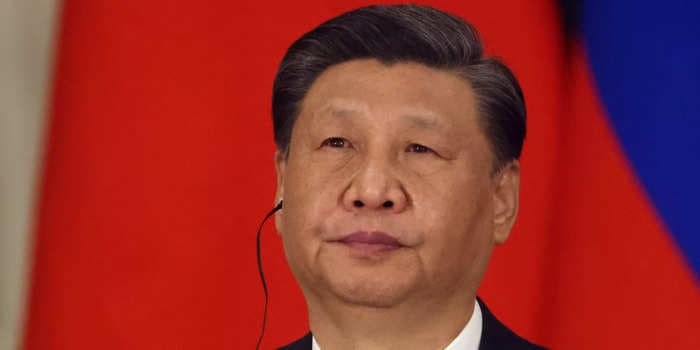Filip De Mott

Bets that the Chinese economy still has a shot at reaching the top might have to be reconsidered, Mohamed El-Erian wrote in the Financial Times.
Though blowout growth of past decades has helped China become the second-largest economy in the world, Beijing's approach towards the current slump has dampened views that it will overtake the US.
"It is time for the markets to recognize that China is not reverting to its old economic and financial playbook, and its return as a powerful driver of global economic growth is unlikely in the near future," El-Erian wrote. "Economic performance is likely to remain lackluster for the remainder of 2023 and the first half of 2024."
After China lifted pandemic restrictions late last year, the economy saw a brief rebound early this year. But since then, consumption, industry activity, investment, and exports have been disappointing, while youth employment hit record highs and prices have tipped into deflationary territory.
Though analysts and investors have loudly voiced hopes that China's authorities implement a large-scale stimulus program to uplift its economy and fuel domestic spending, Beijing is unlikely to do so in the face of larger structural issues, El-Erian wrote.
That's because previous stimulus strategies are responsible for high debt levels now seen in China's local governments and teetering property market. In place of this, the country's authorities have implemented a series of smaller-level measures.
Leaders are further unlikely to pursue traditional stimulus, out of a worry that continued reliance on it would increase the chances China would fall into the middle-income trap and also encourage corruption, El-Erian wrote.
Instead, he predicted Beijing is likely to continue with smaller-level measures, while looking to transition towards new growth industries, such as green energy, healthcare, supercomputing, and artificial intelligence.
But challenges to growth will persist, and China will have to implement larger debt restructuring measures. Added to that, Beijing may need to rethink its role in domestic markets, El-Erian said:
"The authorities will also need to overcome their now overwhelming inclination towards centralization and, instead, enable but not micromanage the emergence of powerful private sector engines of growth. Despite what many may continue to tell you, it is no longer a given that China will become the world's largest economy."
Similarly, Bloomberg Economics said on Tuesday that China is unlikely to permanently take the top spot, predicting gross domestic product would briefly surpass the US's in the mid-2040s, but by "only a small margin" before "falling back behind."
The economists — who previously saw China overtaking the US in the 2030s — believe GDP growth will slow to just 1% by 2050, revised down from an earlier prediction of 1.6%.
No comments:
Post a Comment